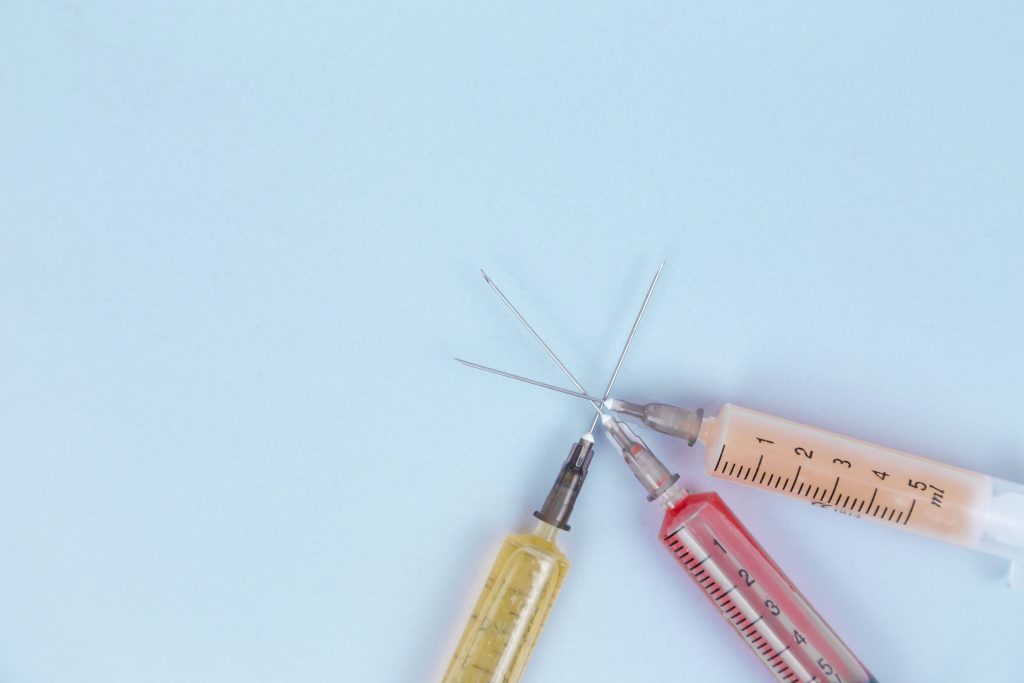Hypothyroidism is a medical condition that occurs when the thyroid gland is unable to produce enough thyroid hormone. Thyroid hormone production is essential to regulating the body’s normal physical and mental functions such as digestion, temperature, and metabolism. Having an underactive thyroid can result in many varying symptoms like fatigue, weight gain, cold intolerance, constipation, depression, dry skin, and hair loss. Hypothyroidism is typically diagnosed following a blood test that measures thyroid hormone levels and then treated with medication containing a synthetic replacement for the thyroid hormone needed.
Comparison of Hypothyroidism Drugs
There are several medications currently used to treat hypothyroidism. Each works similarly to improve thyroid hormone levels, but there are also clear differences between these medications and their functionality. Here is a comparison of the 3 most popular options: levothyroxine, liothyronine, and desiccated thyroid extract.
Levothyroxine
The most commonly prescribed medication for hypothyroidism is called Levothyroxine. Levothyroxine is a synthetic form of thyroxine, which is the main hormone produced and released by the thyroid gland. Thyroxine (T4) plays a crucial role in regulating the body’s metabolism as well as helping to control the rate at which the body burns calories and uses energy. It also affects the growth and development of many tissues in the body.
Levothyroxine helps treat hypothyroidism by replacing or giving extra levothyroxine to those who do not naturally produce enough of this hormone. Levothyroxine is well tolerated by most patients and has a long half-life, which means that it can be taken once a day. Patients are usually started on a low dose of this medication then gradually increased until the desired thyroid hormone levels are achieved.
Liothyronine
Liothyronine is a synthetic form of triiodothyronine, another thyroid hormone naturally produced by the thyroid gland. Triiodothyronine (T3) is similar to thyroxine (T4) in that it also plays a key role in regulating the body’s metabolism.
Although it is more potent and has a faster onset of action than T4, it has a shorter half-life and therefore needs to be taken multiple times a day. Liothyronine is usually taken as a tablet and is typically prescribed as an adjunct therapy to levothyroxine, or as a replacement therapy for patients who do not respond well to levothyroxine alone.
Desiccated thyroid extract
Desiccated thyroid extract is made from the thyroid gland of pigs and contains both previously discussed hormones, thyroxine and triiodothyronine . Before synthetic hormones were developed, this naturally derived medication was the main treatment for hypothyroidism. It is still used by some patients who prefer a more natural alternative to synthetic drugs. However, its use is controversial because the hormone levels can vary between batches, and it can also contain other substances that may be harmful. When treating a long term, dosage sensitive condition like hypothyroidism, even slight variation in the potency of active ingredients can cause unpredictable results.
In general, levothyroxine is the preferred treatment for hypothyroidism because it is well-tolerated, has a long half-life, and is effective in most patients. Liothyronine and desiccated thyroid extract may be used in certain cases, such as when a patient is not responding well to levothyroxine or prefers a natural alternative. However, these drugs require more frequent dosing and may have more side effects. It is important to work closely with a healthcare provider to determine the best treatment option for each individual patient.
Switching hypothyroidism medications frequently or changing from brand name to generic versions of these medications (or vice versa) is not encouraged by healthcare professionals. Although generic medications are approved by the FDA to have the same potency and efficacy as their brand name counterparts, small percentage differences in potency and changes in filler ingredients can have an adverse effect over time.
Side Effects of Hypothyroidism Medications
Like most medications, the side effects of hypothyroidism medications vary depending on the specific medication and the individual patient. Overmedication, or too high of a dose, can lead to symptoms of hyperthyroidism such as heart palpitations, anxiety, weight loss, and insomnia. Too low of a dose can lead to the opposite: fatigue, weight gain, and depression. Allergic reactions are always possible as well, which would cause symptoms like itching and difficulty breathing. Some people may also experience gastrointestinal distress on hypothyroidism medications, bringing on stomach upset, diarrhea, or constipation. Headaches, hair loss, and muscle weakness are also listed among common side effects.
It is important to note that these side effects are not experienced by all patients and that most patients tolerate hypothyroidism medications well. However, it is important to report any unusual symptoms or side effects to a healthcare provider. In some cases, a dose adjustment or a change in medication may be necessary to reduce side effects.
Cost of Hypothyroidism Medications
Levothyroxine’s common use and generic availability make it relatively inexpensive, with the average cost of a 30 day supply ranging from $4 to $12 depending on the dosage and the pharmacy.
Liothyronine is more expensive than levothyroxine with a price averaging around $17 to $30 for a 30 day supply.
Desiccated thyroid extract is more expensive than both levothyroxine and liothyronine partially because there is no generic version currently available. The average cost of a 30-day supply of desiccated thyroid extract is around $40, depending on the dosage and the pharmacy.
Of course, the cost of hypothyroidism medications will vary depending on the specific drug, the dosage, and the pharmacy where it is purchased. This cost comparison of the three most popular drugs prescribed to treat hypothyroidism is based on information currently available at the time, but eNavvi can help you find the most up to date and relevant price of these drugs based on your location and insurance coverage.
